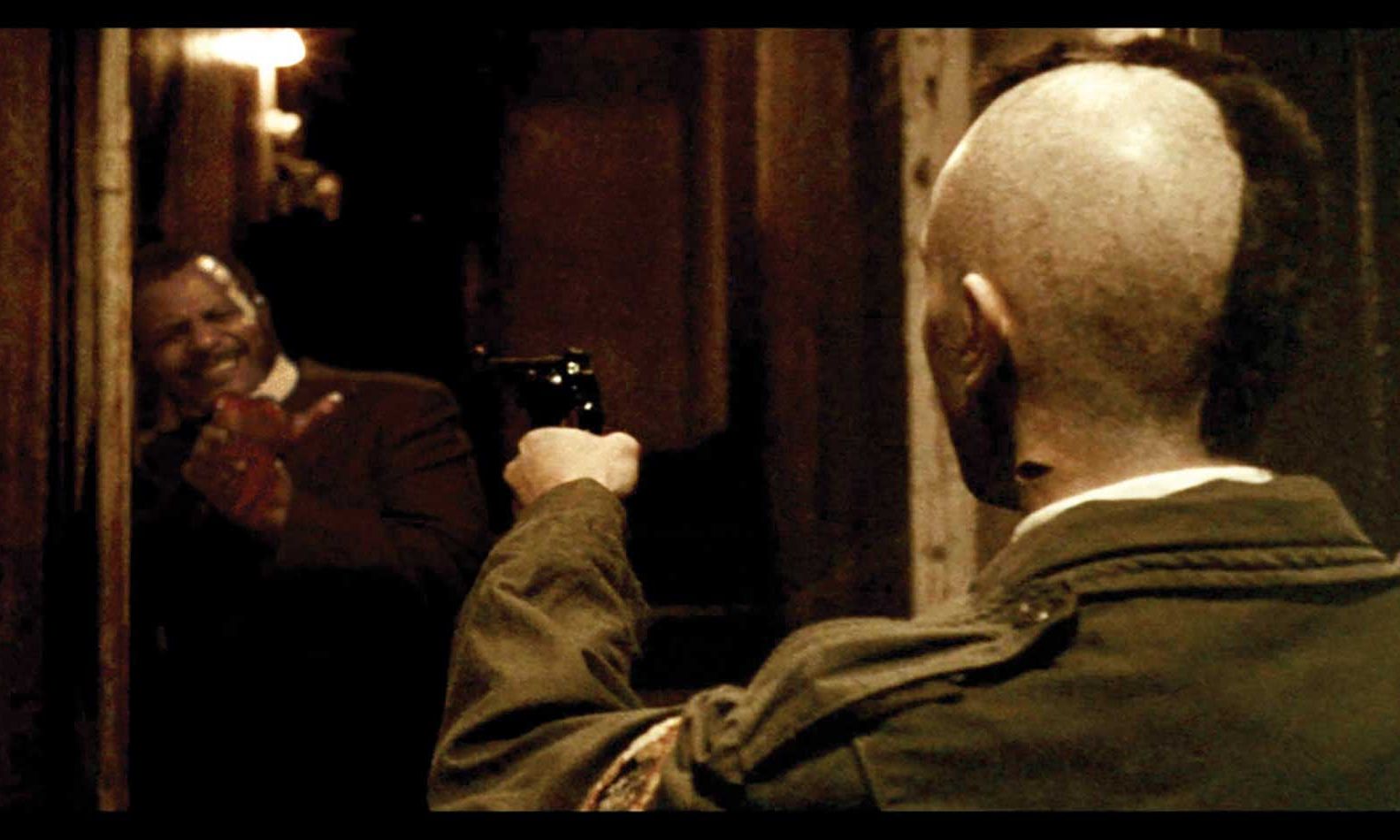In BEN GAZZARA, Arthur Jafa’s reinterpretation of Taxi Driver, Travis Bickle’s white victims are replaced with Black characters
© Arthur Jafa, courtesy of the artist and Gladstone Gallery
One of art’s superpowers is to reframe the familiar—something which extends to other works of art. This was reinforced for me recently when I interviewed the US artist Arthur Jafa for the A brush with… podcast. We discussed his video BG (2024, formerly known as *****), which is a brutal, mesmerising retelling of Martin Scorsese’s Taxi Driver (1976). Jafa takes the film’s denouement—where Travis Bickle, played by Robert De Niro, massacres three men in a quest to protect Iris, the young sex worker played by Jodie Foster—and, using new technologies, replaces the original white characters slain by Bickle with Black actors. He repeats the sequence 13 times, with both dramatic and subtle differences in each reworking, accompanied by the relentless rhythm of bullets hitting flesh.
Years ago, Jafa discovered that Paul Schrader, Taxi Driver’s screenwriter, intended the pimp played by Harvey Keitel, and the other characters Bickle kills, to be Black. The studio intervened on the dubious premise that Black people might riot were that the case. But Bickle’s white supremacist worldview would have been better addressed in Schrader’s original vision. Jafa said he felt “it’d be really incredible if you could renovate or repair or make Taxi Driver what it wanted to be, in its full racist glory”. Thanks to Jafa’s film, I will never again see Scorsese’s movie in the same light.
BG has also made me reconsider another cultural masterpiece. It features a new sequence in which the pimp, now played by Jerrel O’Neal, stands on his porch singing along with “As”, the epic penultimate track on Stevie Wonder’s opus Songs in the Key of Life. The song then becomes the soundtrack for part of Bickle’s killing spree—a jarring, horrific recontextualisation.
Wonder’s double album is in temporal sync with Scorsese’s movie; it was released in September 1976, the month after Taxi Driver. “In 1976, everybody was listening to Songs in the Key of Life,” Jafa says. And “As”, he says, is “arguably the greatest single song” on the record. But also—and this has stayed with me—“out of the context of the rest of the record, it’s pretty fucking apocalyptic and spiritual, too”.
I am a Stevie Wonder fan. I have listened to “As” hundreds, maybe thousands, of times. Its spirituality is obvious—Wonder is nothing if not a man of faith—but I’d never considered it apocalyptic. With Jafa’s perspective, I have listened to it with new intent.
I’d always adopted an obvious reading: that “As” is a declaration of love’s indomitability. Wonder sings that he’ll love the object of his affection forever, until the impossible becomes real—“the ocean covers every mountain high”; “the trees and seas just up and fly away”. But there is a shift in the final verse. He adopts a voice he uses rarely—a rasping, prophetic tone—and addresses a wider audience, urging it to protect love to avoid “helping to make this earth/A place sometimes called hell”. He links this to the maker’s omnipotence: “God knew exactly where he wanted you to be placed.” So if you believe in an all-powerful deity, as Wonder does, then a world that gives in to life’s “hates and troubles” might make those impossibilities real. Love will end.
Arthur Jafa gives “As”, the joyous anthem to love by Stevie Wonder (above), a darker tone
Photo: Jeffrey Mayer, Pictorial Press/Alamy
Wonder adopts that same voice at the end of another epic, 1973’s “Living for the City”, a searing indictment of systemic anti-Blackness. He ends the final verse: “If we don’t change, the world will soon be over.”
Taken together, these two songs find Wonder protesting amid hate and injustice in the mid-1970s, raging against exactly the attitudes exemplified by Bickle and embedded in societal structures. In this context, “As” is a clarion call to reject hate and embrace love. But its undertone is indeed “fucking apocalyptic”, a reading that Jafa’s film has helped make startlingly compelling.
• BG features in Arthur Jafa: Nativemanson, Sprüth Magers, Los Angeles, until 14 December

